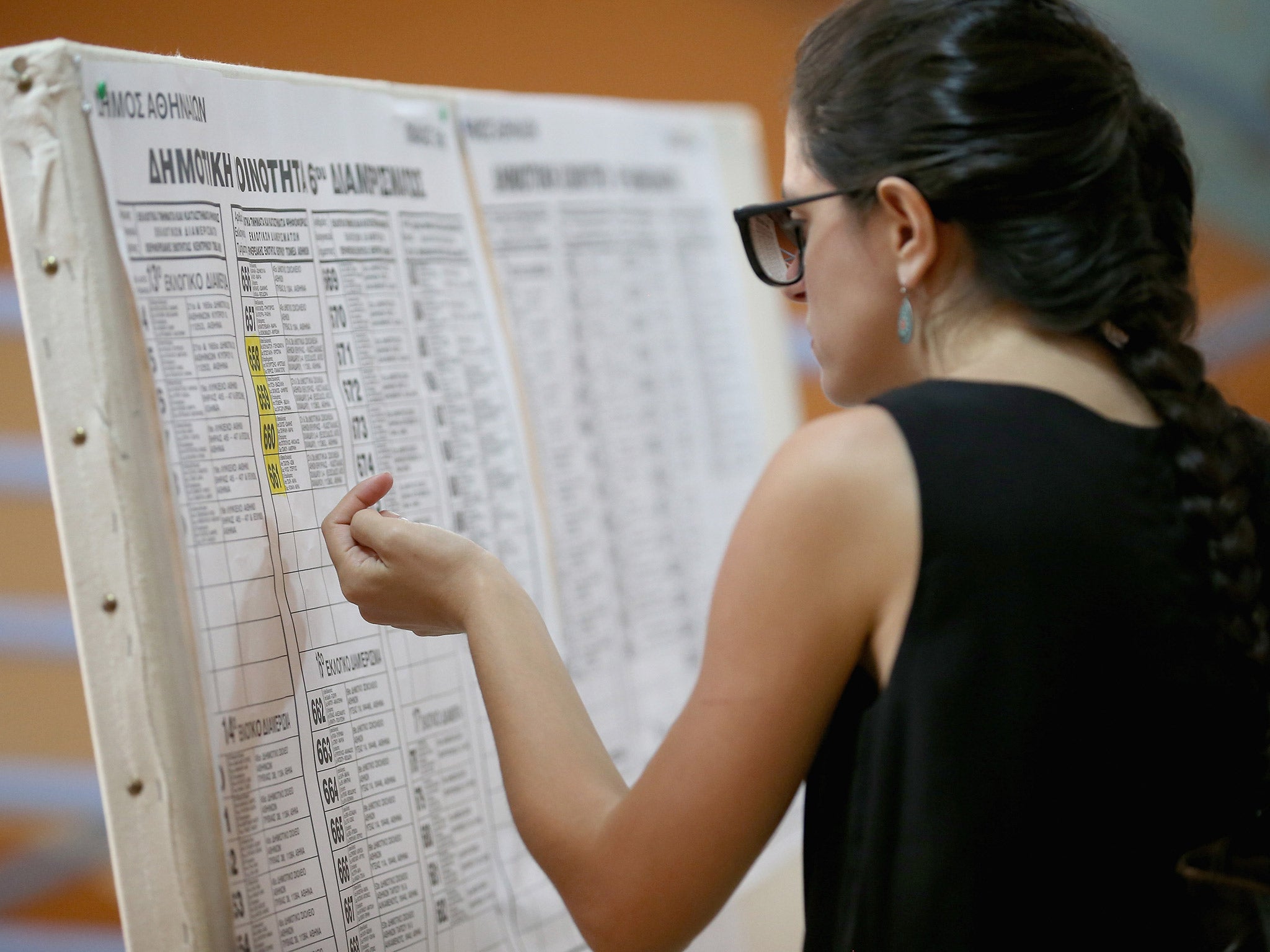Greece referendum: Varoufakis accuses EU creditors of 'terrorism' as Greeks go to the polls
Vote comes amid fears a 'no' vote could lead to 'Grexit' and economic chaos

Your support helps us to tell the story
From reproductive rights to climate change to Big Tech, The Independent is on the ground when the story is developing. Whether it's investigating the financials of Elon Musk's pro-Trump PAC or producing our latest documentary, 'The A Word', which shines a light on the American women fighting for reproductive rights, we know how important it is to parse out the facts from the messaging.
At such a critical moment in US history, we need reporters on the ground. Your donation allows us to keep sending journalists to speak to both sides of the story.
The Independent is trusted by Americans across the entire political spectrum. And unlike many other quality news outlets, we choose not to lock Americans out of our reporting and analysis with paywalls. We believe quality journalism should be available to everyone, paid for by those who can afford it.
Your support makes all the difference.Greeks are going to the polls in a make-or-break referendum on austerity measures put forward by its international creditors, amid fears a 'no' vote would risk collapse for Greece and a severe impact on the wider EU economy.
The Syriza government has urged Greeks to vote against the austerity measures, with Yanis Varoufakis, the Greek finance minister, accusing the country's creditors of "terrorism".
"What they’re doing to Greece has a name: terrorism," Mr Varoufakis said. "If the Yes side wins ... then Europe, the place where democracy and rationalism were born, will turn into a dictatorial and irrational place."
But proponents of a 'yes' vote warn that voting against the bailout conditions will leave Greece struggling without cash and lead to an exit from the Euro - the much debated Grexit.
The Telegraph newspaper quoted Martin Schulz, the president of the European Parliament, as painting a picture of a Greece where "salaries won't be paid, the health system will stop functioning, the power network and public transport will break down, and they won't be able to import vital goods".
On Sunday morning Schulz told German radio that, in the case of a 'no' vote, the Greeks would be effectively leaving the euro.
"Is Greece still in the euro after this referendum? That is certainly the case, but if they say 'no' they will have to introduce another currency after the referendum because the euro is not available as a means of payment," he said.
David Cameron, the UK prime minister, has said the Greek referendum will essentially amount to an "in/out" vote on whether Greece should leave the eurozone.
Meanwhile Chancellor George Osborne has said: "I don't think anyone should underestimate the impact a Greek exit from the euro would have on the European economy and the knock-on effects on us."
Banks have been closed all week in Greece to prevent a run on the country's financial institutions by savers concerned that falling out of the Euro will damage their savings.
On Tuesday Greece failed to make a repayment to the International Monetary Fund (IMF).
Greek Prime minister Alexis Tsipras called the snap referendum a week ago. He is gambling his political future on the vote and has indicated that if the 'yes' vote wins, he will likely step aside.
(Additional reporting by agencies)
Join our commenting forum
Join thought-provoking conversations, follow other Independent readers and see their replies
Comments